Hives
Understanding Hives: Causes, Symptoms, and Treatment
Hives, also known medically as urticaria, present as an itchy skin rash characterized by raised welts that can vary greatly in size and shape. These welts often appear suddenly and may shift or migrate across different areas of the skin, causing considerable discomfort. The triggers for hives are diverse, ranging from allergies and medications to stress and infections, among other factors.
If you experience hives or any other skin condition, it’s crucial to consult a skin specialist or dermatologist. A specialist can conduct a thorough examination to accurately diagnose the condition and identify potential triggers. Based on this comprehensive assessment, they can create a personalized treatment plan tailored to address the root cause of your hives. This plan may include medications to reduce symptoms, lifestyle adjustments, and strategies to avoid known triggers, ensuring a focused and effective approach to managing and alleviating the discomfort associated with hives.
Examples of Hives
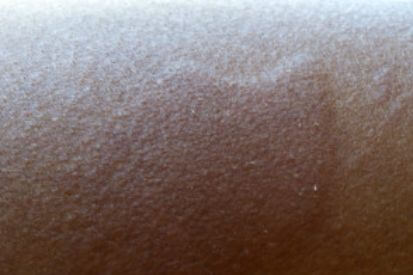
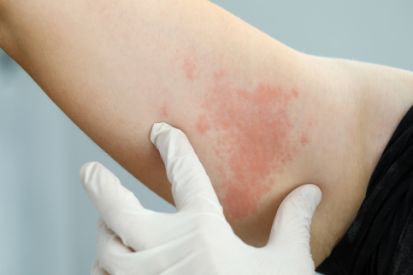
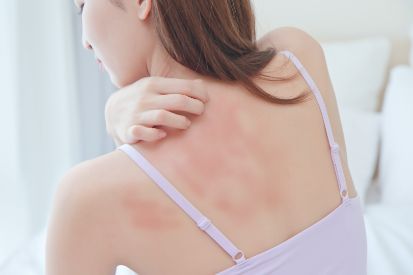
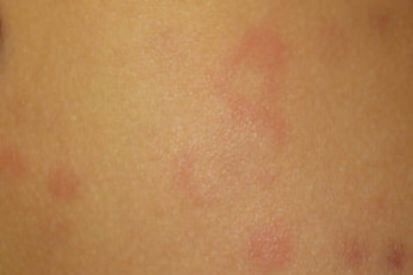
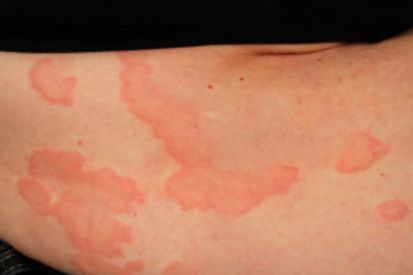
What are the Symptoms of Hives?
- Hives, or urticaria, is an itchy skin rash that present as raised, itchy welts on the skin that vary in size and shape.
- Hives can appear suddenly and often migrate, causing discomfort.
- Symptoms may resolve within hours but can persist.
- Severe cases can involve swelling of the face, lips, or throat, requiring prompt medical attention.
What are the Causes of Hives?
- Reactions to certain foods, medications, insect stings, or pollen.
- Viral or bacterial infections.
- The body's immune system mistakenly attacking its own tissues.
- Adverse reactions to certain drugs.
- Exposure to heat, cold, pressure, or sunlight.
- Emotional stress can trigger hives in some individuals.
- Chronic conditions like thyroid disorders or lupus.
How to Prevent Hives
FAQs on Hives
You should consider seeing a dermatologist for hives if they persist for more than a few days, recur frequently, or are accompanied by other symptoms such as difficulty breathing, swelling of the face or lips, or a high fever. Chronic hives, which last more than six weeks, also warrant a visit to a dermatologist. They can assess underlying causes, which may range from allergies to autoimmune disorders, and provide appropriate treatments such as antihistamines, corticosteroids, or other medications.
Additionally, if the hives are significantly impacting your quality of life, causing severe discomfort, or not responding to over-the-counter treatments, a dermatologist can offer specialized care. They can conduct tests to identify potential triggers and create a personalized management plan. Early consultation with a dermatologist can help prevent complications and provide relief more quickly.
Yes, stress can indeed trigger hives, a condition known as stress-induced urticaria. When you are under stress, your body releases chemicals like adrenaline and cortisol, which can cause the skin to react. This reaction can lead to the development of hives, characterized by red, itchy welts on the skin. Stress can exacerbate existing hives or trigger new outbreaks, especially in individuals who are predisposed to this condition. The physiological changes caused by stress can affect the immune system, making the skin more reactive to various stimuli.
Managing stress is an important component of controlling hives. Techniques such as mindfulness, meditation, exercise, and proper sleep can help reduce stress levels and, consequently, the frequency and severity of hives. If stress-induced hives become persistent or particularly bothersome, consulting a healthcare provider is recommended. They can suggest appropriate treatments and coping strategies to manage both the stress and its dermatological manifestations.
If you suspect that an allergic reaction is causing your hives, it is crucial to take prompt action. Here are the steps you should follow:
Seek Medical Attention: Contact a healthcare professional immediately if you experience hives, especially if they are accompanied by more severe symptoms such as difficulty breathing, swelling of the face or throat, or dizziness. These could indicate a serious allergic reaction known as anaphylaxis, which requires urgent medical care.
Contact a Dermatologist: Schedule an appointment with a dermatologist who can evaluate your condition. Dermatologists are trained to identify the signs of allergic reactions and can provide expert care.
Use Antihistamines: Over-the-counter antihistamines can help reduce itching and swelling. Your dermatologist may also prescribe stronger antihistamines or other medications to manage your symptoms more effectively.
Identify and Avoid Allergens: A key part of managing allergic reactions is identifying the specific allergen causing your hives. Dermatologists can conduct tests, such as skin prick tests or blood tests, to determine the allergen. Once identified, take steps to avoid exposure to the allergen in the future.
Follow Up Care: Regular follow-up visits with your dermatologist are important to monitor your condition and adjust treatment plans as necessary. Your dermatologist can provide ongoing support and recommendations to prevent future allergic reactions.
Yes, certain foods can trigger hives, and it is advisable to avoid them if you are prone to this condition. Common food allergens that may cause hives include shellfish, nuts, eggs, milk, and certain fruits like strawberries and citrus. Additionally, food additives such as artificial colors, preservatives, and flavor enhancers (e.g., MSG) can also provoke hives in some individuals. Keeping a food diary can help identify specific triggers by tracking what you eat and any subsequent hives outbreaks.
If you experience frequent episodes of hives, consulting with a dermatologist or an allergist is recommended. These specialists can perform allergy testing to pinpoint specific food allergens and provide personalized advice on dietary modifications. By identifying and avoiding trigger foods, you can significantly reduce the frequency and severity of hives, improving your overall quality of life.
Patient Story: Treating Skin Conditions at Cumberland Skin
Treatment Options for Hives
Consulting with your dermatologist will provide the best treatment options for your specific condition. Schedule with us today.
Related Blog Posts

- Skin Cancer
- General Dermatology
- Chronic Skin Conditions
Learn more about the most common types of skin lesions we see at Cumberland Skin and how our dermatologists remove them.
Read More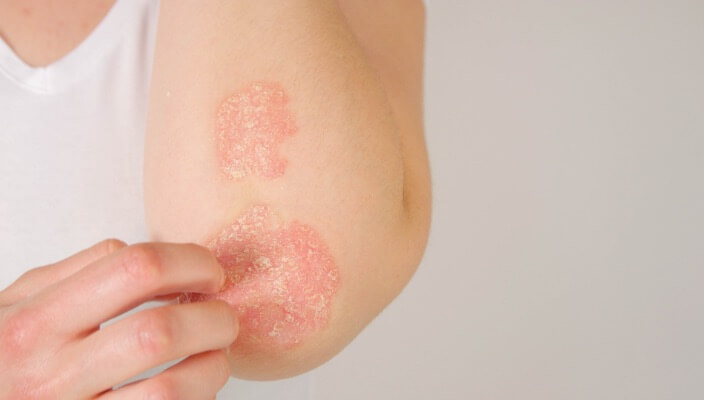
- General Dermatology
- Chronic Skin Conditions
Learn the differences between dry skin, eczema, and psoriasis, their distinct characteristics, and potential triggers. Gain valuable insights into identifying symptoms and seeking appropriate treatment to effectively managing these common skin conditions.
Read More
- General Dermatology
- Chronic Skin Conditions
Learn why some people experience exercise-induced hives and how to prevent this allergic reaction.
Read MoreFeatured Products
Check your local office for current stock!
Check your local office for current stock!
